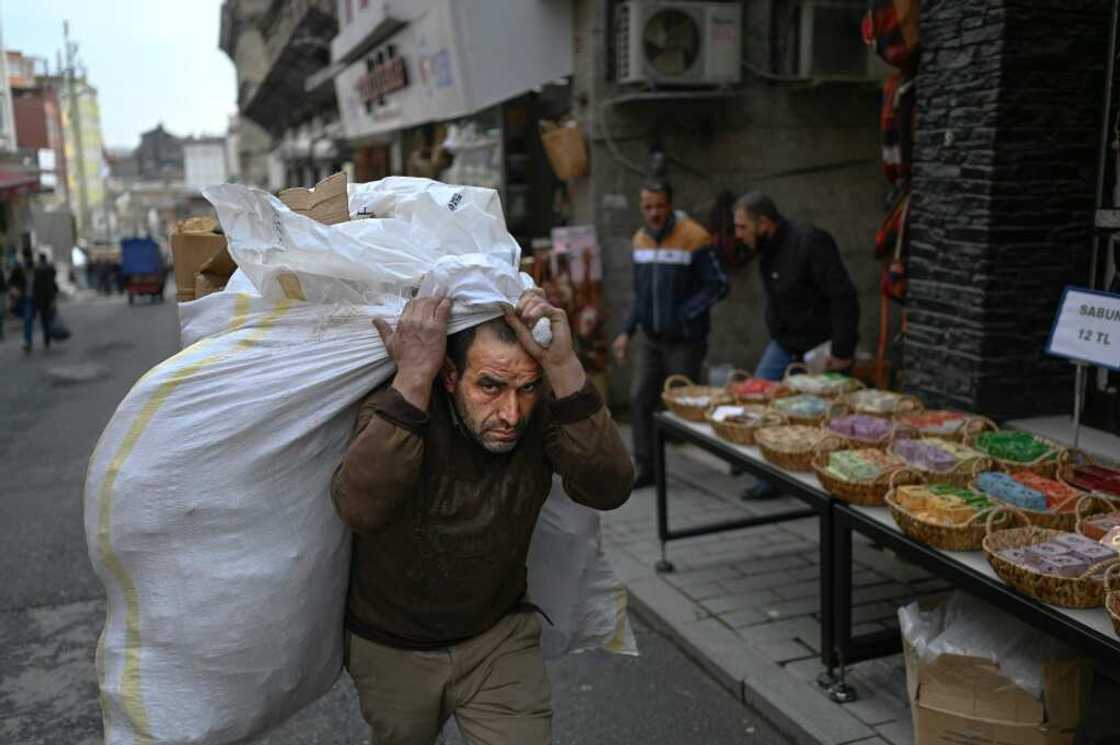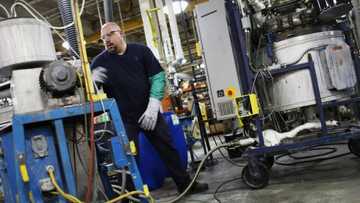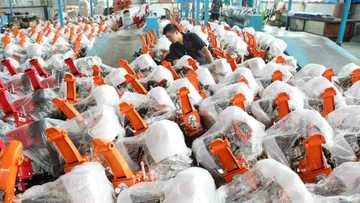Turkish inflation stabilises at under 80% in boost to Erdogan

Source: AFP
Turkey's annual inflation rate stabilised in July at just under 80 percent, official data showed on Wednesday, helping support President Recep Tayyip Erdogan's pledges that runaway price increases would soon stop.
The official annual rate of consumer price increases reached 79.6 percent in July compared to 78.6 percent in June.
Turkey plunged into a fresh economic crisis when Erdogan set off on an unusual economic experiment nearly a year ago that attempted to bring down chronically high inflation by slashing interest rates.
Conventional economic theory, accepted by world governments, states that lower interest rates drive growth and push up prices by building up demand.
Turkey now has a real interest rate that factors in inflation of negative 64.4 percent -- the lowest in the world by a substantial margin.
This means that Turks have a strong incentive to spend as much as they can before their liras lose even more value.
PAY ATTENTION: Share your outstanding story with our editors! Please reach us through info@corp.legit.ng!
But Erdogan has repeatedly urged "patience" and vowed that prices would start falling again at the start of next year.
"A price stabilisation trend has already started," Erdogan said two days before the latest inflation report was released.
"We hope that inflation will enter a significant downward trend in the first months of the new year."
The central bank now forecasts the inflation rate to ease back down to roughly 40 percent by the time Erdogan is due to face a difficult re-election next July.
Doubt in data
Opposition leaders and many Turks no longer trust official government data.
The annual inflation rate reported this week in Istanbul -- headed by a popular opposition party figure -- was roughly 100 percent.
"Turkey's official inflation and Istanbul's inflation have historically moved in tandem," the Turkish central bank's former chief economist Hakan Kara tweeted.
"The difference, which has reached 19.5 percentage points in the last four months, is remarkable."
But a respected monthly study released by independent economists from Turkey's ENAG research institute also showed prices stabilising -- although at a much higher rate than the one reported by the state statistics agency.
ENAG said the official annual rate of consumer price increases reached 176 percent in July compared to 174 percent in June.
The government's July report showed price increases being led by a 119-percent jump in the cost of transportation.
This helps back government arguments that inflation is being driven by external factors such as soaring energy prices caused by Russia's standoff with the West over its invasion in Ukraine.
Food and non-alcoholic prices rose by 95 percent because of the sharp depreciation of the lira that makes imports more expensive.
The Turkish currency has lost more than half its value against the dollar in the past 12 months.
It now trades at nearly 18 to the dollar compared to the 3.5 mark at which it stood in 2018.
Erdogan's popularity has suffered badly in the second decade of his rule as a result.
A poll of polls released this week showed him losing in a runoff against any of the top five potential challengers to his rule.
Source: AFP





